Atlanta Florist Blossoms During Busy Seasons
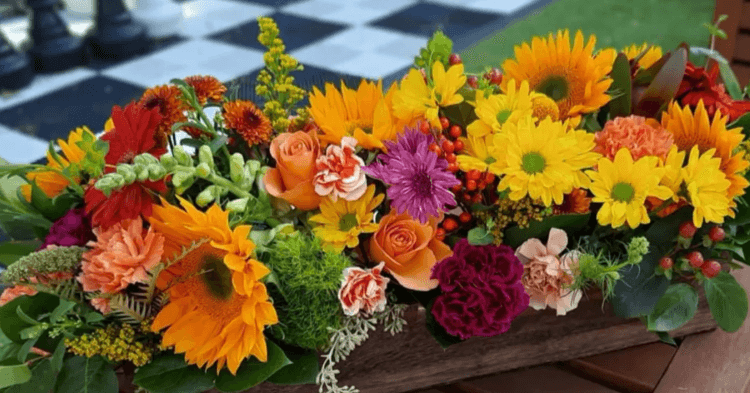
Teneka Williams and her flower shop, Royal Petals ATL, have roots firmly planted in Atlanta, Georgia. She’s the only florist on her side of town, and customers love her Atlanta-themed bouquets. But during Teneka’s first three years in business, busy holidays resulted in more stress than profit. OnDeck spoke to Teneka about the lessons she’s learned, as well as her current strategy for maximizing seasonal sales.
Customer was compensated for sharing their story.
Atlanta Roots
Teneka Williams was born and raised in Atlanta, GA.
“I have a lot of love for this city,” she says.
The specific area Teneka serves, the southwest side of Atlanta, is a historically underserved community. But she knows that doesn’t change what people want or deserve.
“I want people who are in marginalized and underserved communities to know…you can expect more and you deserve more,” she says.
A New Leaf
Teneka was a librarian for 15 years.
“I love everything about the library,” she says. But she wanted to create a bigger impact on a more flexible schedule.
Teneka was already surrounded by flowers. Her husband’s green thumb made her front yard a neighborhood attraction.
“He has an amazing talent for turning hard earth into something beautiful. I guess it just rubbed off on me.”
Teneka began buying flowers every Sunday and arranging them into bouquets.
“And it got to be such a habit that if I didn’t do it, my kids would be like, ‘Are you not feeling well today? Where are the bouquets? This is a ritual for us.’”
She then realized the impact that flowers have on people.
“Flowers as a living thing impact us as living beings,” Teneka says. “It really changes the mood — changes the ambiance.”
As her interest grew, she connected with a small business incubator program. They were offering storefronts in shipping containers for new industries on the southwest side of Atlanta.
“I applied one day before closing. They accepted it two weeks later.”
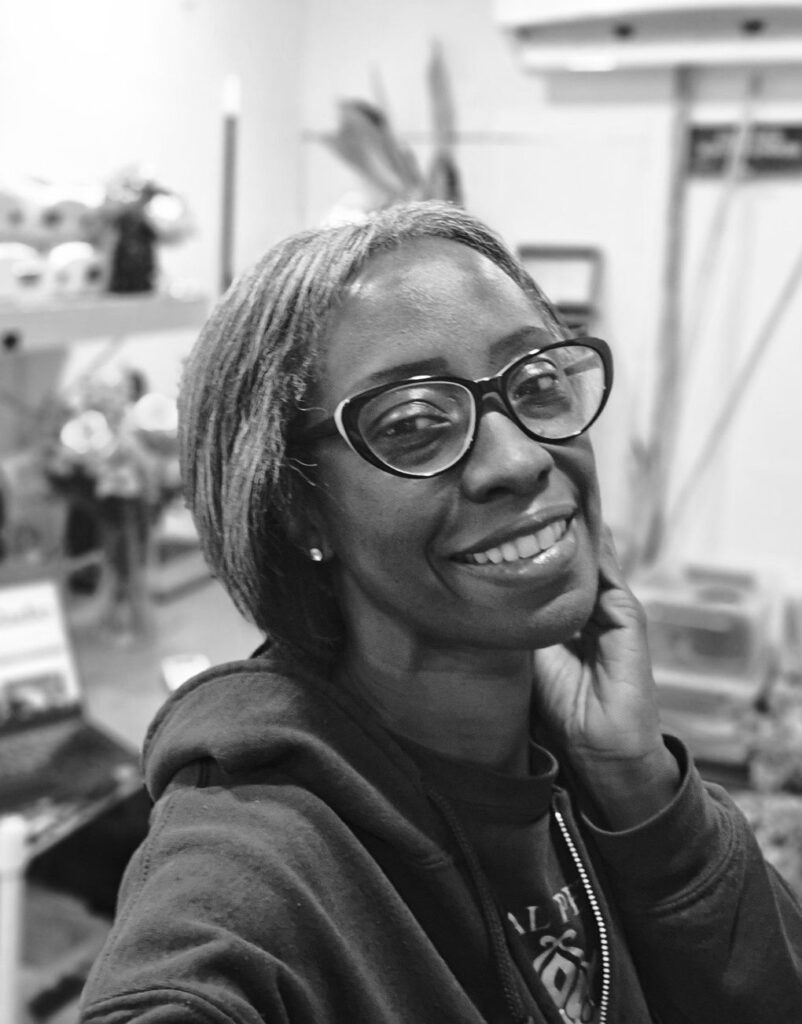
Going Local to Fuel Growth
Teneka attributes her growth to a number of factors. At the heart of her efforts is creating a “homegrown” brand that resonates with the community she serves.
“All of my bouquets and everything I do is Atlanta-themed. I use a lot of neighborhood references.”
On her website, each product description gives customers a taste of Atlanta history. That’s her English degree and librarian experience shining through.
“People like it because it automatically gives them a sense of pride,” she says. “You really know you’re buying local.”
That local pride pays off, too. Teneka’s “South Fulton Stunna” bouquet — named after the city of South Fulton in Georgia — led to her supplying arrangements for their city hall events.
Social media also plays a huge role in the growth of Teneka’s business. She had no marketing experience when she started, so she spent time researching social media.
“I don’t think people realize — you can learn it,” says Teneka. “Because there’s an audience for every niche.”
She continues, “I’ve had to teach myself how to do different things. How to make things more visually appealing, how to do little tricks with the pictures. That wasn’t a skill set I had, but it’s a skill set I’ve grown. It’s a skill set that I can take anywhere I go.”
Teneka’s social media strategy includes customizing content for each social media platform, asking clients to “tag” her in product photos they share, incorporating background music from Atlanta artists and embedding social media videos into each product listing.
“You never stop learning and you never stop growing,” she says. “You can always do more and you can always do better.”
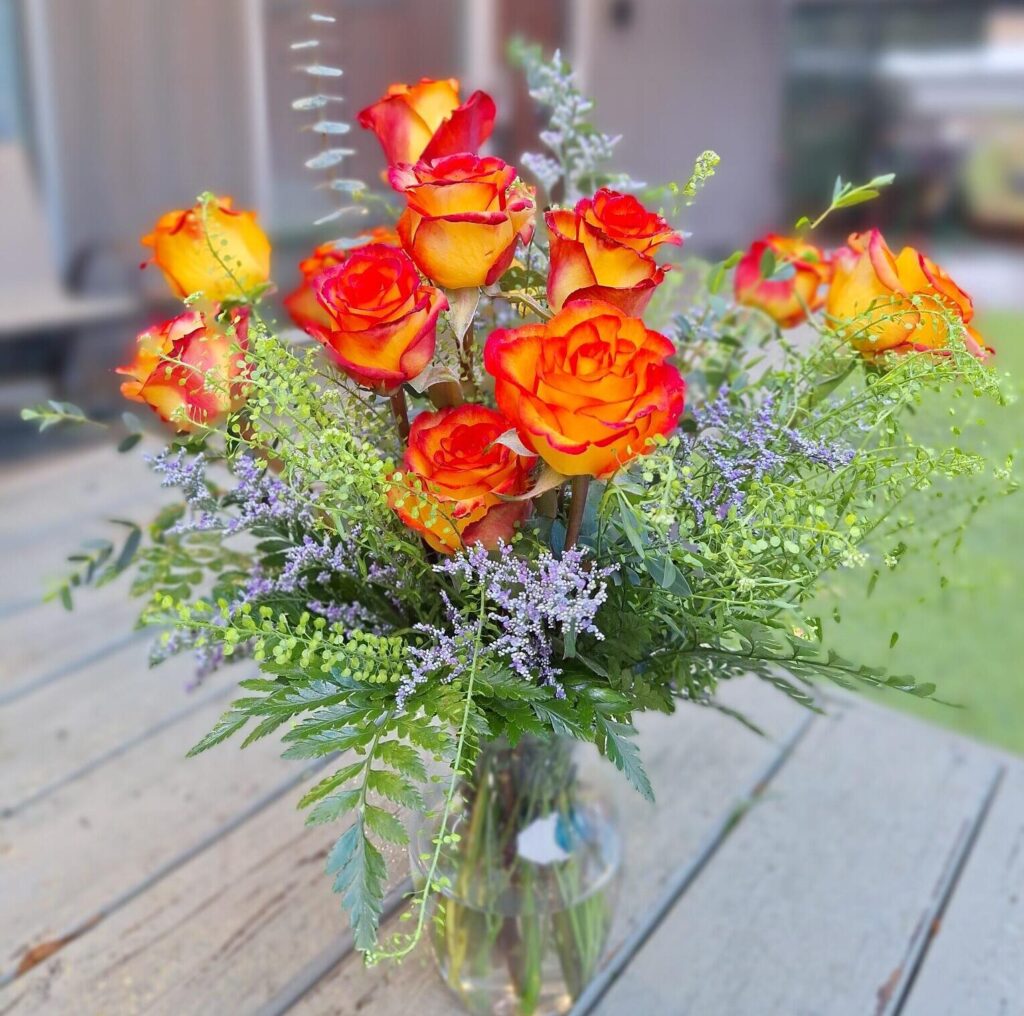
Strategic Pricing
“Valentine’s Day is a big time — it’s a huge time,” says Teneka.
Teneka used to be swamped on Valentine’s Day.
“The first three years I was in the business, I drove myself crazy trying to meet every demand, trying to meet every order, trying to have every flower available,” she says.
Although Teneka was getting more orders and doing more work, the cost of materials and delivery led to her barely breaking even. And it was up to her to figure out why, and what she could do to change it. After a candid conversation with her wholesaler, she learned a key piece of information:
“The wholesaler marks up.”
To account for the markup, Teneka changed what she offers for Valentine’s Day. Now, she offers just one arrangement for a slightly higher price. If customers want another type of arrangement, they have to order by January 31 (before flower prices rise).
“As a florist I’ve learned that you have to be strategic…[and] offer people discounts for ordering ahead,” Teneka says.
She’s also learned that being busy doesn’t always mean more profit. “I’ve learned to temper it and not get too swayed by the hype,” she says.
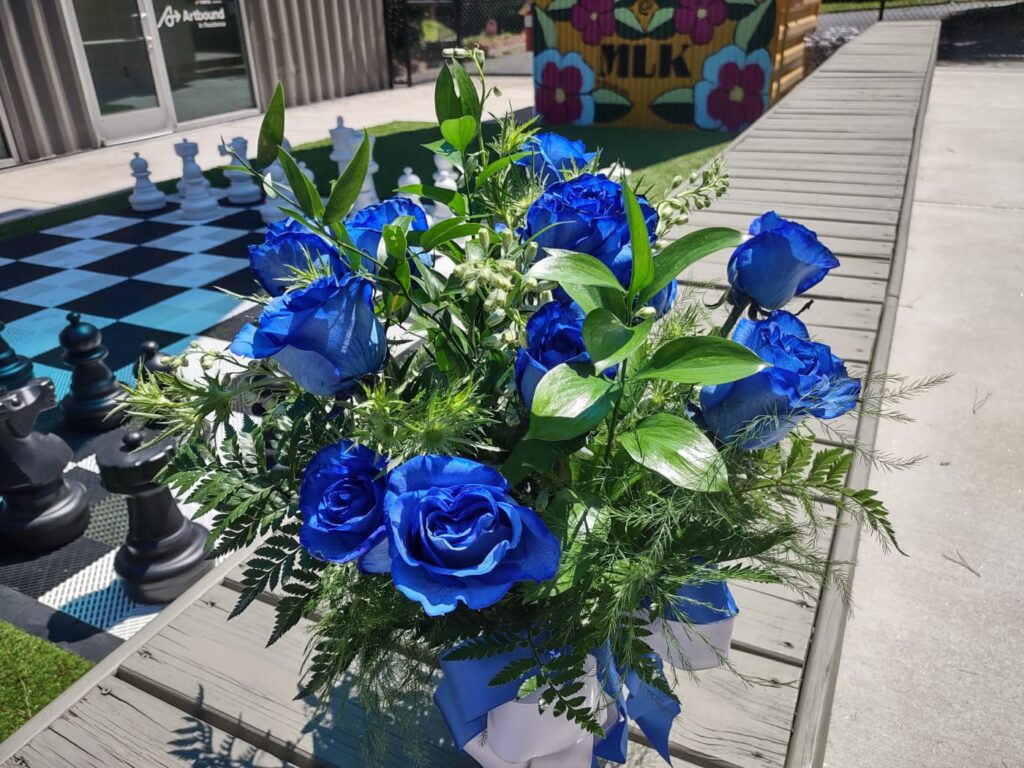
Planning Ahead
In addition to managing holidays, learning to plan ahead was another big challenge that took time to master.
During her first three years in business, Teneka didn’t pay much attention to the promotions her wholesalers ran during certain months. But she has since learned to use that to her advantage. For example, her supplier’s January sale on vases is the right time to stock up for Valentine’s Day.
“But to stock up on those vases, you would have had to put the money aside in December,” Teneka explains. “To put the money aside in December, you would have had to start thinking about this in November.”
Developing foresight, and being consistent with it, is a learned skill that contributes to Teneka’s survival during busy seasons.
Don’t Overextend Yourself
In addition to thinking ahead, Teneka warns against biting off more than you can chew. “Be honest about what you can do,” she says.
She emphasizes that compromising the quality or output of your product is unwise.
“Your product is the biggest thing, aside from your personality, as a business owner,” says.
Instead of taking on more orders, Teneka recommended maximizing a smaller amount. “I don’t want to do 50 orders a day,” she says. “I would never leave this shop.”
“But if I can maximize the 10 that come in? Then we’re good.”
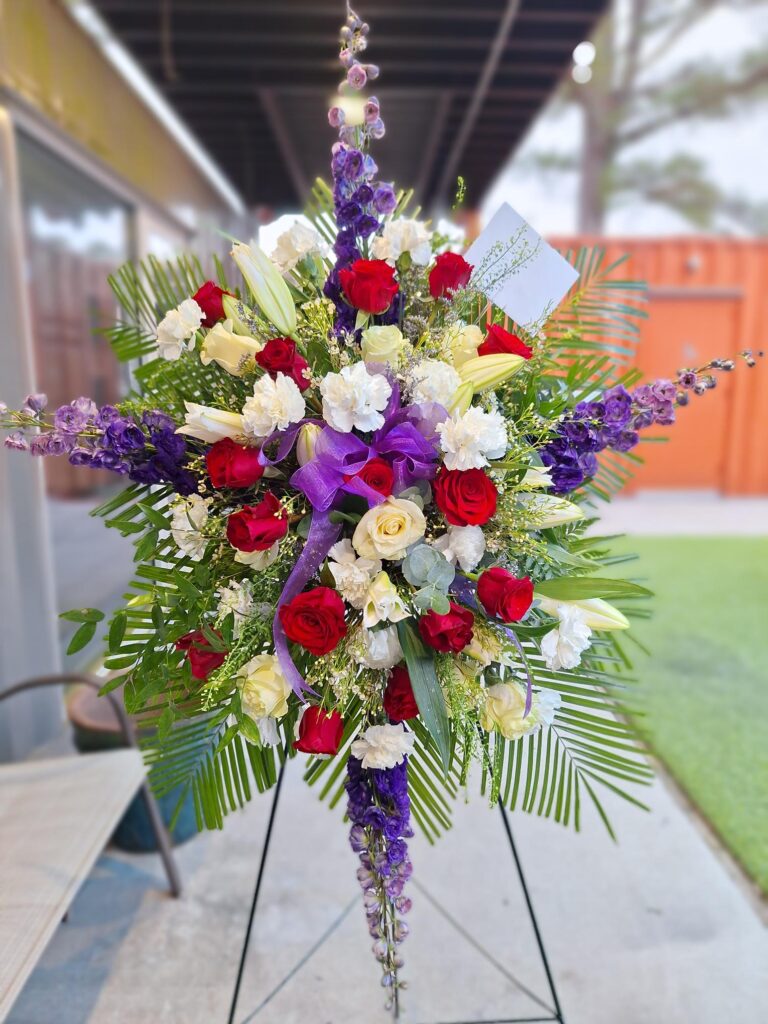
Advice to Those Thinking About Starting a Business
“Do it,” Teneka says.
“You can start a business while you’re doing other things. You can start a business at home now. We live in such a technological age, that you can start a business doing anything, anywhere.”
She continues, “Who knows, the idea that you’re twisting around in your thumbs might change the world.”
And even if your business doesn’t change the world, “It might just change your life,” Teneka says.
DISCLAIMER: This content is for informational purposes only. OnDeck and its affiliates do not provide financial, legal, tax or accounting advice.
Find the right funding for your business.
Term loans up to $250K. Lines of credit up to $100K.
No obligations and no hard credit pulls.




